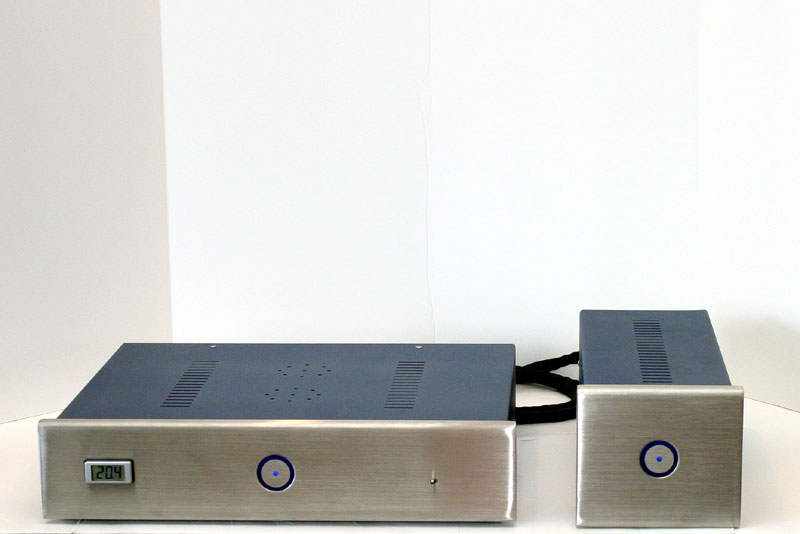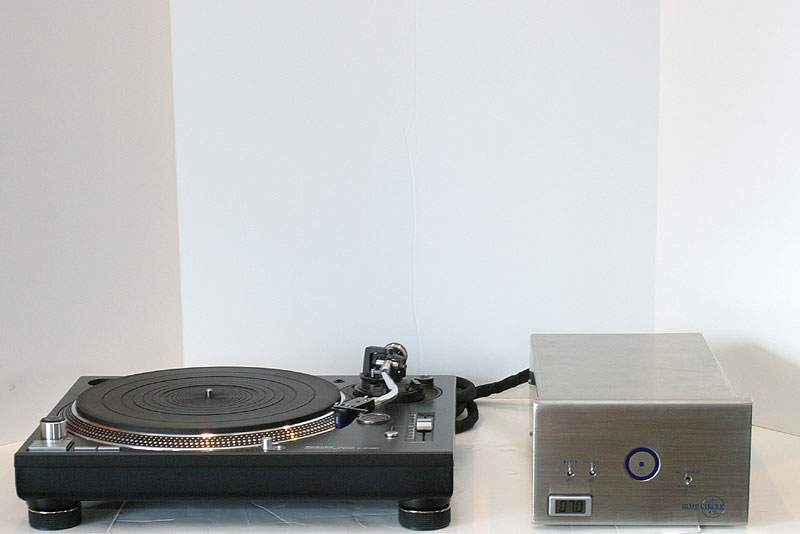Off-the-Grid Audio
recent trip to Canada underscored a difference between Canadians and Americans that's especially relevant at this point in time: Canadians seem serious about recycling, while we Americans run the gamut in terms of our views on reusing basic resources. For instance, in British Columbia you are charged a deposit on bottles of all kinds, including ubiquitous clear water bottles. You get a surprise when you buy a case or two of water and don't know about the five-cents-per-bottle tariff. That nickel is a reminder to save the bottle and return it. Return it where? If not at the store where you purchased it, then to a government-run recycling center, where you can take all manner of recyclable bottles (along with aluminum cans) and receive cash in return. As a kid (and even an adult), I made money in more difficult ways. In the northwestern US and other parts of the country, I'm sure, recycling is considered a civic duty, and people comply, whether there are deposits on bottles or not. However, there are also places in the US, such as Arizona, where I live, in which recycling is not mandatory, so it becomes easy to overlook. Here, it can actually cost you to have the trash company pick up recyclables separate from regular garbage, and that's a definite disincentive. Gilbert Yeung of Blue Circle Audio is Canadian by way of Hong Kong, and while I know he cherishes the outdoors -- he enthusiastically snaps pictures of wildlife wherever he goes -- I don't know if his latest products are manifestations of an interest in conservation or simply the outgrowth of his ever-fertile mind. Call them "green" or "off the grid," but Gilbert's growing lineup of battery-powered audio gear is both energy friendly and sonically relevant. And immense, as Gilbert pointed out to me via e-mail.
When I reviewed the top-of-the-line BC703 phono stage last year, I knew about its battery-power option, but there wasn't time then to have the demo unit modified. Still, Gilbert persisted in wanting me to hear it, so we eventually arranged for a battery BC703 along with one of Gilbert's battery-powered Technics turntables to make their way south. I've been using both off and on for a few months.
When it's converted to battery power, the BC703 gains a sizeable separate power supply. Gilbert also adds his IAOE power-supply option. The abbreviation stands for "insane amount of energy" and involves adding massive filtering capacitance to the unit's power supply -- so much that even without the batteries, the BC703 will run for a few minutes when unplugged. Gilbert uses 24 AA NiMH 2500mAh batteries that will keep the phono stage running for more than ten hours when fully charged. His special charger always keeps the batteries topped off, but it won't overcharge them, and it can charge the batteries while the phono stage is running from AC power. There is a switch for choosing between AC and battery power, and the optional front-mounted LCD meter allows monitoring the batteries' status.
Gilbert's turntable is a modified Technics SL-1210 Mk 5, a member of the 1200-series direct-drive family. I won't go into detail about the features of these DJ 'tables that make them suitable for audiophile use, but I will say that their wide availability makes them the obvious choice for modification. Gilbert's Level 1 upgrade ($495) requires removing the transformer and power-supply circuit board from the turntable and mounting them in a separate chassis. This eliminates the transformer's vibration. He then installs 90,000uF of DC filtering capacitance, multiplying it by nearly 200 times. This stabilizes the power supply and increases speed stability. The Level 2 upgrade ($950-$1295 depending on options and chassis) includes the Level 1 modifications and adds a battery power supply for the turntable, which offers absolute speed stability and isolation from power-line inconsistencies. In both cases, you have to supply the turntable, which costs around 800 clams. All of the modifications are invisible to the eye. A Blue Circle logo affixed to the top plate is the only identifying mark on the turntable, until you look around back and see no power cord. In its place are a pair of XLR connectors for the power supply. These have different numbers of pins, so you won't mix up which cable connects where. The power supply has toggles for running the 'table on pure battery power or from AC while the batteries charge. There is a third toggle for turning the meter, which indicates voltage, on and off. I have to admit to having a chill go up my spine when, while a record was spinning, I switched to battery power for the first time. I also pulled the power cord from the wall outlet, just to emphasize the point. The 'table kept perfect speed with nary a hiccup. It will continue to play this way for ten hours. As with the BC703, the turntable's power supply will never overcharge the batteries, so letting it charge at night is an option. The high torque and speed stability of these Technics 'tables are legendary, but, compared to my stock SL-1200 Mk 2, there is an improved sense of rhythmic solidity and forward momentum from the Blue Circle 'table. However, even greater in sonic terms was is BC703 when it's disconnected from the wall. The stock BC703 sounded blazingly dynamic, forceful and immediate. The battery BC703 loses none of these traits and gains some tonal purity, the music sounding more elemental, less the product of a complex electrical chain, which is, in fact, the case. I went back and listened to many of the LPs I heard on the AC-powered BC703, and while aural memory is fleeting, I don't think I would have overlooked the smoothness and liquidity I heard with the battery BC703. It still doesn't sound like tubes, either in terms of image fullness or overall ease, but it does sound more sophisticated. The batteries clearly elevate its performance. While the battery-powered BC703 offers the greater sonic improvement, the turntable is by far sexier. I've thought seriously about having Gilbert do his thing to an SL-1210 M5G, which has upgraded tonearm wiring, as a change of pace from my reference mass-loaded, belt-drive 'table. Once TAB's IPO is final, I'll splurge. Another intriguing and truly green feature of both the
turntable and phono stage is the ability to charge them with solar panels, a $300 option
that would turn them into never-on-the-grid products. While recycling is not a
constant here in Arizona, sunshine is. |


